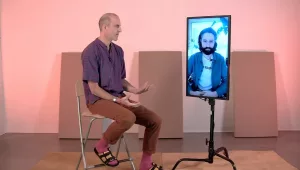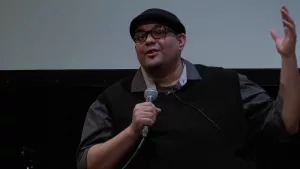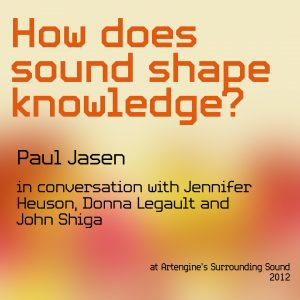Kristen Carlson, an assistant professor at Illinois State University, merges computation with embodied creative processes across choreography and media performance. Her diverse background includes movement, technical theory, theater, interaction design, and programming. She is notably published in fields like cognitive science, computing, and electronic arts. During her talk, Carlson emphasized the integration of procedural coding in reconsidering compositional processes in choreography. Her approach combines technology with traditional movement practices to explore how these domains influence and enhance each other. She is fascinated by how technology can capture and respond to the nuances of bodily movements and the potential to create generative works from this interaction. The presentation also touched on her interest in how motion capture technology impacts movies and video games, noting the lack of use of machine learning to manipulate data in these fields. Carlson’s work exemplifies a cross-disciplinary inquiry into the intersection of technology, movement, and artistic expression.


